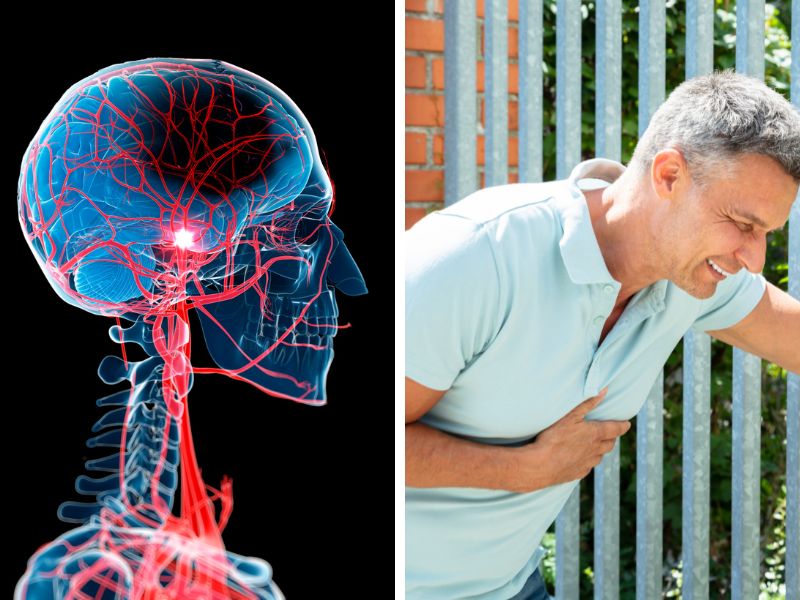A sobering prediction has emerged in recent studies: the global incidence of stroke-related deaths is projected to surge by 50% by 2050. This alarming statistic is a wake-up call to understanding and mitigating stroke risks. Fortunately, individuals can take several actionable steps to reduce their susceptibility to this life-altering event.
Maintain A Healthy Lifestyle
Leading a balanced lifestyle is pivotal in reducing stroke risk. Regular exercise, a balanced diet rich in fruits, vegetables, and whole grains, along with controlled alcohol consumption and avoiding smoking, play vital roles. These habits help maintain healthy blood pressure, cholesterol levels, and weight.

Canva. com
Manage Blood Pressure
High blood pressure is a significant risk factor for stroke. Regular monitoring and control through lifestyle adjustments or prescribed medication can significantly reduce the likelihood of a stroke.
Control Cholesterol Levels
Elevated cholesterol levels can lead to plaque buildup in the arteries, increasing the risk of stroke. Eating a heart-healthy diet and, if necessary, taking prescribed medications can help regulate cholesterol levels.
Monitor Diabetes
Individuals with diabetes are at a higher risk of stroke. Regular monitoring of blood sugar levels, maintaining a healthy diet, and adhering to prescribed treatment plans are crucial in minimizing this risk.

Canva. com
Exercise Regularly
Regular physical activity helps maintain a healthy weight, improves cardiovascular health, reduces blood pressure, and promotes better blood flow, all contributing to a lower stroke risk.
Seek Medical Advice
Regular check-ups with healthcare providers can identify and address potential risk factors early. It’s important to follow medical advice and attend screenings for conditions like atrial fibrillation, a heart condition associated with higher stroke risk.
Prioritize Mental Health
Chronic stress, anxiety, and depression have been linked to an increased risk of stroke. Practicing stress-reducing techniques, seeking professional help, and maintaining a solid support system are all crucial for mental well-being.
